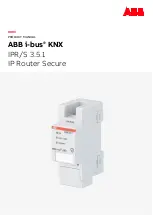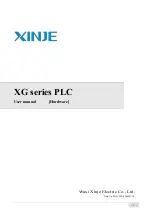
Intel® Xeon® Processor E5-1600/E5-2600/E5-4600 Product Families
17
Datasheet Volume One
Overview
— x16 port (Port 2 & Port 3) may negotiate down to x8, x4, x2, or x1.
— x8 port (Port 1) may negotiate down to x4, x2, or x1.
— x4 port (Port 0) may negotiate down to x2, or x1.
— When negotiating down to narrower widths, there are caveats as to how lane
reversal is supported.
• Non-Transparent Bridge (NTB) is supported by PCIe* Port3a/IOU1. For more details
on NTB mode operation refer to
PCI Express Base Specification - Revision 3.0
:
— x4 or x8 widths and at PCIe* 1.0, 2.0, 3.0 speeds
— Two usage models; NTB attached to a Root Port or NTB attached to another
NTB
— Supports three 64-bit BARs
— Supports posted writes and non-posted memory read transactions across the
NTB
— Supports INTx, MSI and MSI-X mechanisms for interrupts on both side of NTB
in upstream direction only
• Address Translation Services (ATS) 1.0 support
• Hierarchical PCI-compliant configuration mechanism for downstream devices.
• Traditional PCI style traffic (asynchronous snooped, PCI ordering).
• PCI Express* extended configuration space. The first 256 bytes of configuration
space aliases directly to the PCI compatibility configuration space. The remaining
portion of the fixed 4-KB block of memory-mapped space above that (starting at
100h) is known as extended configuration space.
• PCI Express* Enhanced Access Mechanism. Accessing the device configuration
space in a flat memory mapped fashion.
• Automatic discovery, negotiation, and training of link out of reset.
• Supports receiving and decoding 64 bits of address from PCI Express*.
— Memory transactions received from PCI Express* that go above the top of
physical address space (when Intel VT-d is enabled, the check would be against
the translated HPA (Host Physical Address) address) are reported as errors by
the processor.
— Outbound access to PCI Express* will always have address bits 63 to 46
cleared.
• Re-issues Configuration cycles that have been previously completed with the
Configuration Retry status.
• Power Management Event (PME) functions.
• Message Signaled Interrupt (MSI and MSI-X) messages
• Degraded Mode support and Lane Reversal support
• Static lane numbering reversal and polarity inversion support
















































